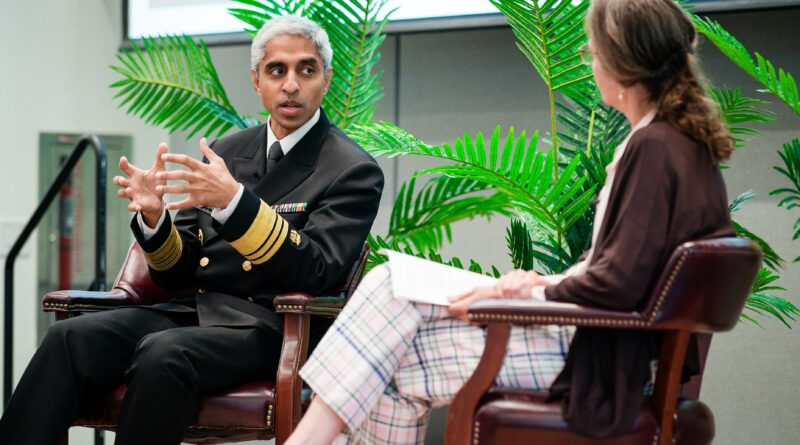Mental health, AI and inclusive healthcare are among the topics at the Big Ideas conference
The initiative’s self-proclaimed goal, to “cure, prevent and control” all diseases, sounds lofty, promoters said, so it’s not unusual for people to hear that and get angry. In science, people aren’t used to thinking about progress over a 100-year period, said Stephen Quake, PhD, professor of bioengineering and materials physics, the Lee Otterson Professor in the School of Engineering, and chief science officer for the Chan Zuckerberg. Determination. But maybe they should start. “We’re thinking about humanitarian conditions, three-year periods,” he said during an interview with Chan. “The role of the first reaction of people with doubts [is] they’re not used to thinking about what happens over a 100-year period. And if you kind of study that, you realize that a lot can happen in 100 years.”
The researchers shared a variety of exciting ideas for the future of health and medicine. James Zou, PhD, assistant professor of biomedical data science, spoke about the evolution of AI, from a modern puzzle solver to a tool that accelerates research by generating protein sequences for therapy, to create images, spit out text or provide various other products. . Boris Heifets, MD, PhD, assistant professor of anesthesiology, perioperative and pain medicine, shared his analysis of psychedelics in the mental health system. And Anna Lembke, MD, professor of cognitive and behavioral sciences, developed a new form of abstinence known as “dopamine fasting,” which requires a person to refrain from behaviors that release the hormone dopamine (such as surfing the web of social media or eating junk food.) to prevent addiction and restore dopamine balance in the brain.
Eleni Linos, MD, DrPH, professor of dermatology, took the stage as a storyteller. In May, Palo Alto, California, was treated to an unusual weather phenomenon: the northern lights. Linos reluctantly joined his friend for a night walk to the dark campus hill, but looked up at the sky and saw…nothing. “When I started walking, someone I didn’t know hugged me on the shoulder. They said, ‘No, no, no, put your phone out,'” recalled Linos, the Ben Davenport and Lucy Zhang Professor of Medicine. He found that his phone was able to capture the beautiful pinks and greens flowing in the sky. “That was the moment I said, ‘Oh, this is real life, augmented reality. This is how it should be in my clinic.'” The AI-enabled device at A doctor’s smartphone, for example, can scan skin lesions and help them make a diagnosis based on data that cannot be seen with the naked eye.
Linos added that years ago, on a plane, he sat next to a blind passenger. His first reaction was to help – did he need help navigating the plane? To pour his drink? He didn’t do that. (It turned out that it was a motivational speaker named Hoby Wedler who shared ideas about access and science. He even got a PhD in biochemistry by sensing the relationships between molecules.) hule.) They started a conversation.
“We were flying to the East Coast, so we had a very serious discussion about accessibility and whether educational institutions need to provide more opportunities for people with disabilities, including blindness,” said Linos. They talked about his work as a dermatologist and jokingly concluded that there are fields that can be very difficult for a blind person. There never was a blind dermatologist, they agreed.
Fast forward five years. “That has completely changed. Algorithms are not as good as a dermatologist; in many cases, they have improved.” Linos reached out to Wedler. I called him, and I said, ‘You know what? We were wrong five years ago. You can be a dermatologist.’”
“He doesn’t want to,” he said with a laugh. But it raises new questions for Linos: What does it mean for the practice and careers of dermatologists? What will happen five years from today? “I just want to leave you with hope and that question.”
#Mental #health #inclusive #healthcare #among #topics #Big #Ideas #conference
